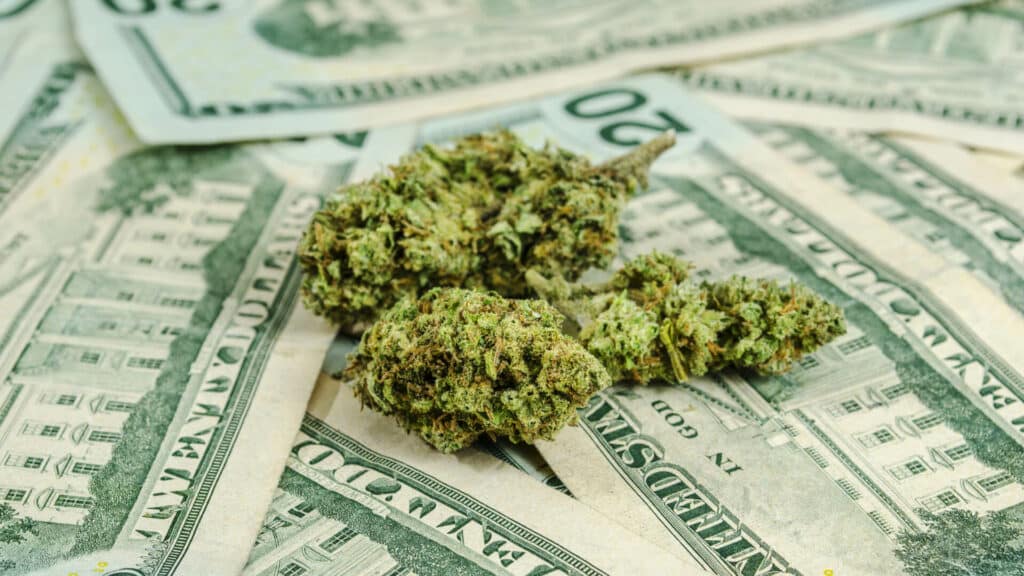Rick Steves On The ‘New Approach To Marijuana Tour’
Last night, travel author and PBS star Rick Steves brought his A New Approach to Marijuana Tour to Vancouver, Washington, in support of Initiative 502, the measure to legalize marijuana. Steves was joined by Charlie Mandigo, the former head for the FBI’s Seattle field office, and Alison Holcomb, the chief petitioner of I-502.
After Holcomb introduced the measure and the speakers, Mandigo spoke first. ”There is no way law enforcement can address the tens of thousands of hand-to-hand street drug transactions,” Mandigo explained as he illustrated how I-502 would free up the police resources expended on the small-time marijuana trade. ”This is a difficult topic to bring up with law enforcement, because they’ve been working on drug crimes for so long, but after I-502 there will still be plenty for them to do,” he reasoned, detailing how people growing and selling outside of I-502-s regulations would still need policing. Mandigo also addressed the fears some parents have about their kids and marijuana. ”For students in school it is easier for them to purchase marijuana than tobacco because clerks ask for their ID.”
But the star of the show, Rick Steves, held court for most of the presentation. He began by explaining how the number crunchers in Olympia are estimating a half billion dollar annual windfall from legalization. Besides the financial impact, Steves explained the social impact in terms of prohibition’s disproportionate effect on children and minorities. ”The Children’s Alliance unanimously endorsed I-502,” he offered for those who worry “what about the message we’re sending to children?” Steves also said, “The NAACP endorses I-502 because they have realized that prohibition of marijuana is doing more harm to the black community than marijuana ever could.”
After expressing the toll of prohibition in terms of “over 800 thousand arrests a year, 90% for possession only, and tens of thousands dead across our southern border, Steves lit into the common opposition talking points in favor of maintaining the status quo:
- Regarding the so-called “gateway theory” that pot use leads to drug use: “In Europe, they discovered that the only gateway in marijuana is its illegality because that forces marijuana purchasers out into the streets where other drugs are for sale. It’s widely acknowledged that the Dutch who tolerate marijuana have half the rates of marijuana use among teens and adults than we do. And in Denmark, where they’ve bulldozed some of the marijuana markets, they’re finding an increase in hard drug use.”
- Regarding so many kids in drug treatment for marijuana: “You cannot judge how many kids need treatment by how many kids are in treatment. When a kids is caught with marijuana, he’s given a choice of serious punishment or attending treatment; guess which he’s going to choose?”
- Regarding legalization leading to increased teen use and stoned drivers: “We have seventeen states that have instituted medical marijuana laws and there is no indication that we have more kids using marijuana or more incidence of stoned driving. When I-502 passes, we may see a slight uptick at first in marijuana use, but then it will most likely level off, because people who want to smoke marijuana already do.”
Steves also took a look at the various forms of marijuana legalization on the ballot this November, indicating that the results from Washington, Colorado, and Oregon will greatly inform future attempts to end prohibition. ”With I-502, we have the most conservative legalization plan. Colorado’s plan is a bit looser; they will allow some limited home growing and they don’t make any changes to the DUI law. Oregon’s is the most far-reaching; it sort of treats marijuana like tomatoes.” Steves’ conclusion is that given an electorate nervous about marijuana legalization, the conservative, incrementalist approach is most likely to win. ”We’re polling at 57% – 58%, Colorado’s going to be close, and Oregon doesn’t have a chance.”
At the end of the speeches, Holcomb took questions from the audience that had been written down on cards. Only one questioner seemed to be opposed to the measure, complaining of the per se DUID standard. ”I’m a medical patient,” the man protested, “and when I had myself tested, I blew 480 nanograms!” Holcomb did her best to explain to the man he must have been talking about inactive marijuana metabolites, like those found in a workplace urine test. Active blood THC, the standard in I-502, only spikes into the 100ng – 200ng immediately during smoking of marijuana. Undeterred, the man continued on, warning of how police will now just profile marijuana users, pull them over, test their blood, and lock them up.
Mandigo and Steves jumped in to the fray to back up Holcomb. The three explained that nothing about the police procedures involved in DUID stops changes with I-502: police still need to stop you, observe impairment, perform field sobriety tests, take breathalyzers, and arrest you before any blood draw can be taken. The man objected, saying cops could “pull you over for a broken license plate light”, but Holcomb explained that equipment failures like that are not probable cause to believe someone is impaired. ”The police will never know what the result of your blood draw is,” she explained, “and the only way your scenario happens is if police decide to start breaking the law.”
At the conclusion of the night it seemed as if the crowd was very much in agreement with Rick Steves on the need to pass I-502. Campaign volunteers told me later that the Vancouver event, the second stop on the tour, had gone much better than the premiere in Olympia, where antagonists from the No on I-502 campaign headed up by medical marijuana entrepreneur Steve Sarich heckled the speakers and tried shouting them down. At one point one of the opposition pushed the state representative who had appeared, forcing the rep to grab the man by the lapels and push back. Washington State Troopers had to escort several protesters away from the Olympia event.
Republished with special permission from the National Cannabis Coalition





